Fellows 2023
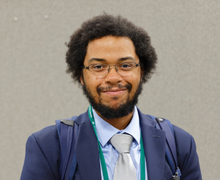
Nathaniel Barbour is a Physics Ph.D. candidate at the University of Maryland, studying plasma physics for nuclear fusion energy. His research explores the potential for machine learning algorithms to accelerate gyrokinetic turbulence simulations. As an undergraduate at Yale University, he studied cosmology and began his path into fusion energy with two internships at the Princeton Plasma Physics Laboratory. His experiences at the national laboratory and in science and environmental policy courses have inspired him to seek solutions to critical global challenges at the intersection of science and policy.
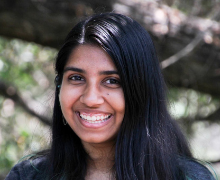
Roohi Dalal is a Ph.D. student in the Department of Astrophysical Sciences at Princeton University. Prior to graduate school, she received a BS in Astrophysics and History from Caltech, and was a Fulbright scholar at Leiden University in the Netherlands. In addition to her thesis research on characterizing dark energy and dark matter with the Hyper Suprime-Cam galaxy survey, she is also deeply interested in promoting the safe and sustainable use of outer space, especially as it relates to nuclear stability and security. She has been engaged in a number of activities related to space policy and space security, including being a member of the policy subcommittee of the American Astronomical Society’s Committee on Light Pollution, Radio Interference and Space Debris.
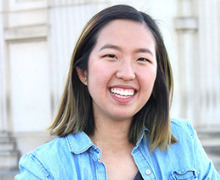
Valerie Hsieh is a Ph.D. candidate in physics at Columbia University. Her graduate research focuses on the electronic and optical properties of 2D heterostructures. She is passionate about science policy and science communication, particularly concerning topics of difficult knowledge in STEM disciplines. Most recently as a Senior Lead Teaching Fellow through Columbia University’s Center for Teaching and Learning, she organized and facilitated a university-wide learning community for graduate instructors about difficult knowledge and inclusive teaching practices. Outside of academia, she is an avid language learner and plays competitive ultimate frisbee. She holds a BA in physics and German from the University of California, Berkeley.
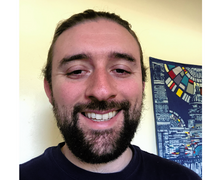
Clayton Strawn is a sixth-year Ph.D. student in Physics at UC Santa Cruz. He got his undergraduate degrees in Physics and Applied Mathematics at UC Berkeley, and for his thesis work has studied the low-density region of gas surrounding galaxies in cosmological simulations. Clayton was a leader in the AGORA Collaboration, a galaxy simulation comparison project which uses more than 8 different softwares and architectures (with over 100 scientists from more than 10 countries!) to compare the scientific validity of commonly-used codes, and thinks his experience leading this kind of large collaboration in science will be important to lead the next generation of scientists into taking seriously the threats of nuclear proliferation. His interest in politics and advocacy have been informed by experiences with affordable housing development and finance, including founding a Community Land Trust in Santa Cruz County and serving as a volunteer analyst of legislation for the Santa Cruz county Democratic Party.
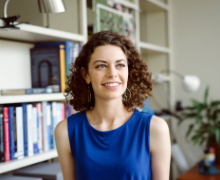
Talia Weiss is a Physics Ph.D. student at Yale University, where her research centers on measuring the neutrino mass using tritium beta decay. She holds an M.A. in Political Science from the University of Chicago and a B.S. in Physics from MIT. At Yale, Talia created and leads the Kimball Smith Series, a program that tackles issues at the intersection of science and global affairs—ranging from nuclear weapons risks to artificial intelligence policy. Previously, she developed a similar event series for the Bulletin of the Atomic Scientists. Talia serves as Deputy Director of International Student/Young Pugwash (ISYP), a global network of young professionals who engage in cross-national dialogue on topics in science and security. She has written and spoken on the history of scientific self-regulation, lessons learned from the case of Nazi nuclear physicists, and how the inventors of CRISPR gene editing viewed the ethics of their research.
